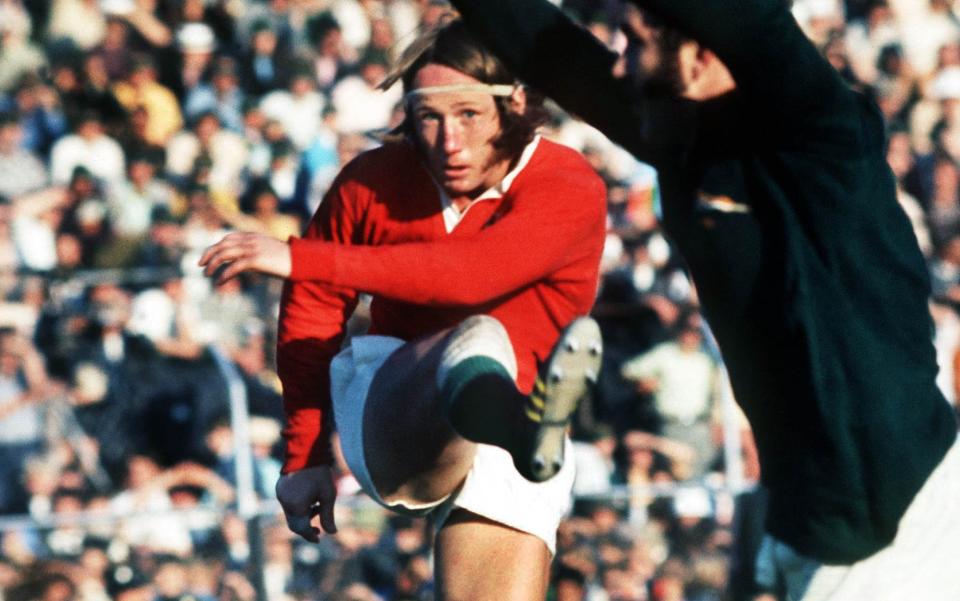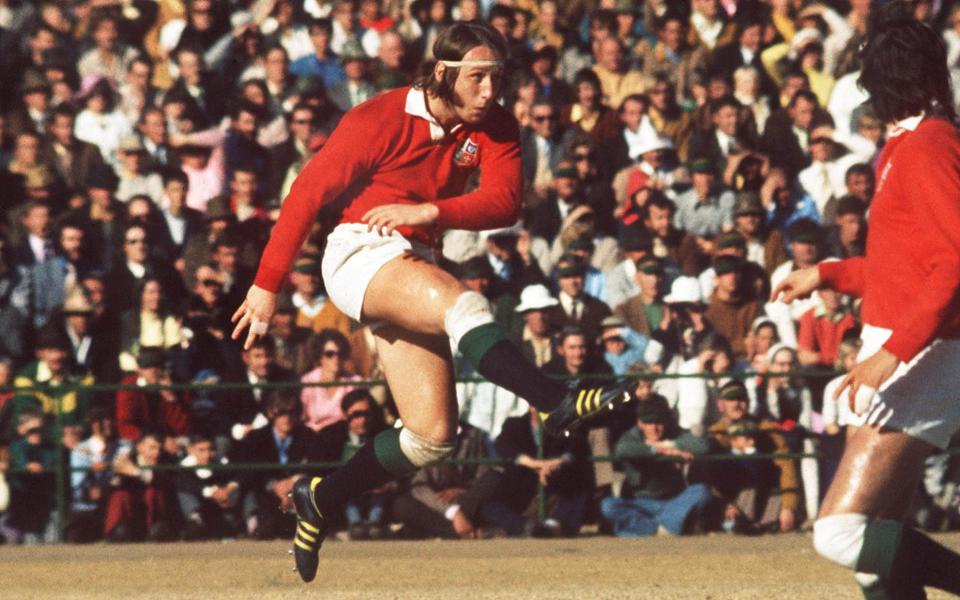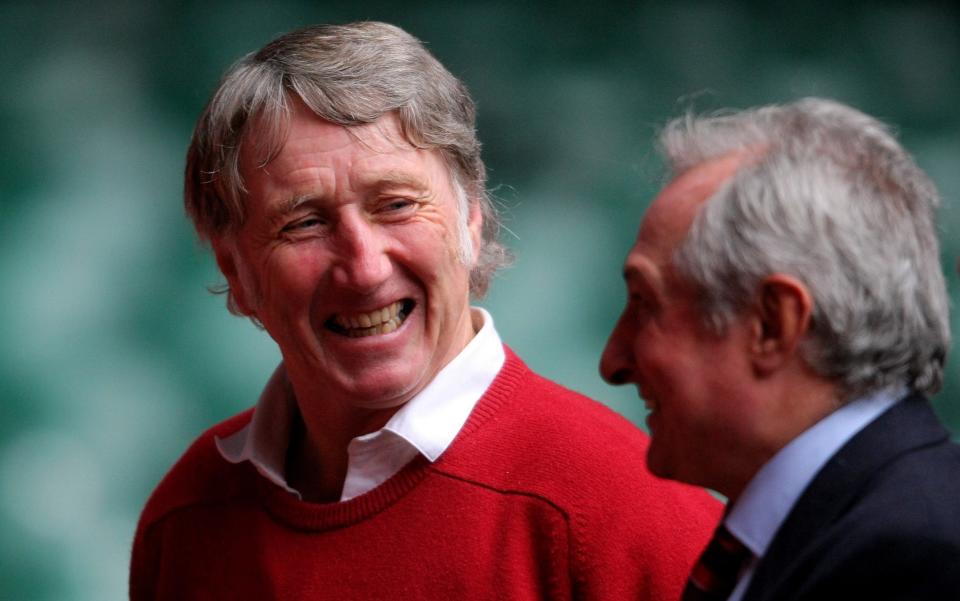JPR Williams, Wales and British and Irish Lions legend, dies aged 74

JPR Williams, the storied Wales international and an icon of the British and Irish Lions and the Barbarians, has died at the age of 74.
Williams, a full-back renowned for his courage and commitment, won three Grand Slams in 1971, 1976 and 1978 as a key figure in a golden era of Wales success alongside other mainstays such as Gareth Edwards and Gerald Davies.
He earned 55 caps and represented the Lions in eight further Tests across two tours, to New Zealand in 1971 and South Africa three years later. On both occasions, the Lions were victorious in the Test series.
The death of Williams, who became known universally by his first three initials, was announced by Bridgend Ravens RFC in a social media post on Monday evening.

“Bridgend Ravens are devastated to announce the passing of JPR Williams,” it read.
“One of Bridgend’s most-decorated players and an icon of world rugby, JPR served the club most recently as club president. Our thoughts are with JPR’s family and friends at this sad time.”
A later statement from the Williams family, wife Scilla and his children, read:
“JPR died peacefully today at the University Hospital of Wales surrounded by his loving wife and four children, after a short illness, bravely battling bacterial meningitis.
“The family request privacy at this difficult time.”
Williams, educated at Bridgend Boys Grammar School and then Millfield School in Somerset, grew up as one of the world’s top talents in tennis and won the British national junior championship, often wrongly labelled as Junior Wimbledon but distinct from the boys’ singles at the All England Club, in 1966. However, he would step away from the sport when it became professional and concentrate on rugby union to complement his medical studies at St Mary’s Hospital in London.
“My father didn’t like professional sport, so open tennis made my decision easier,” said Williams in an interview some years later. “I decided to go to university to study medicine and concentrate on rugby in my spare time.
“All of us in the Wales team had offers to turn professional in rugby [league], but there was tremendous ill-feeling towards the few who had taken up such offers. They were often ostracised, and I don’t think my father would have talked to me if I’d turned professional.”

Having joined London Welsh, Williams made his debut for Wales in 1968. He would captain his country five times, winning six Triple Crowns as well as three clean sweeps. His final cap arrived in 1981, though he later represented Tondu into his fifties. Always conspicuous on the field thanks to his unmistakable sideburns and rolled-down socks, his wholehearted playing style dovetailed with his career as an orthopaedic surgeon.
“I used to say that I spent half my life breaking bones on the rugby field, then the other half putting them back together in the operating theatre,” Williams wrote in his 2007 autobiography, JPR: Given The Breaks – My Life In Rugby.
Williams started at full-back for the Barbarians’ 23-11 victory over New Zealand in 1973 at Cardiff Arms Park that marked its 50th anniversary last year. Indeed, he was part of the mesmerising counter-attack that led to Edwards’s early try.
Three years later, on the same ground, came a moment that encapsulated the bravery of Williams when a shuddering, try-saving tackle on Jean-François Gourdon helped Wales hold off France and secure the Grand Slam.

 Yahoo Sports
Yahoo Sports 
